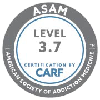Thinking about quitting cocaine and starting a detox program? You might feel a mix of fear and doubt. The fear is totally normal because after all, withdrawal symptoms can seem daunting. At the same time, you’re likely wondering what you’ll actually go through if you commit to the process of substance abuse detox. The good news is that when you know what to expect, it’s much easier to prepare emotionally, mentally, and physically.
In this article, we’ll talk about the symptoms of cocaine withdrawal – from what happens in your body to how it changes your behavior and affects your mind. Whether you’re considering detox, looking into addiction treatment programs, or even just trying to understand more about the effects when you abuse cocaine, keep reading to learn about cocaine withdrawal symptoms.

Physical Withdrawal Symptoms
Like any other drug, quitting cocaine can have a significant effect on your body. If you’ve been using cocaine heavily, your physical dependence on the drug is a reality, and your body is going to notice the absence immediately.
Here are some common physical withdrawal symptoms you might experience:
- Exhaustion – Feeling constantly drained, like you can’t even get out of bed.
- Insomnia – Struggling to fall asleep, even though you’re completely wiped out.
- Slowed thinking and movement – Simple tasks and physical movement may feel sluggish.
- Increased appetite – Suddenly feeling the urge to eat far more than usual.
Cocaine messes with your brain’s reward system, making you feel energetic and alert when you’re using it. When you quit, your body can’t find that same energy. That leads to exhaustion and sluggishness.
On top of that, restless nights can leave you tossing and turning, even when you want to sleep the most. You might also find yourself raiding the fridge at odd hours because of an increased appetite. These temporary symptoms are your body’s way of rebalancing after cocaine detox.
Treatment programs and support groups can be fantastic tools to help you handle these symptoms. During cocaine detox treatment, staff will be available to monitor you to make sure you safely manage the physical withdrawal symptoms.
Behavioral Withdrawal Symptoms
Quitting cocaine doesn’t only affect your body as it impacts how you act too. Your behavior might shift in a way that feels out of character.
The most common behavioral symptoms of cocaine withdrawal include:
- Irritability – Feeling short-tempered or snapping at people for no reason.
- Restlessness – Constantly pacing, fidgeting, or struggling to relax.
- Poor concentration – Having trouble focusing on work, conversations, or daily tasks.
Cocaine stimulates your brain’s dopamine levels, creating those “feel-good” highs. When you stop, your brain struggles to catch up and doesn’t produce dopamine as effectively. This can leave you feeling antsy, frustrated, and easily distracted.
For instance, you might find it challenging to complete simple chores without zoning out or forgetting what you were doing. You might also feel unusually snappy toward friends or family, even when they’re trying to help.
These behaviors can be frustrating, but they won’t last forever. Relapse prevention skills taught in addiction treatment programs can help you manage these feelings and stay on track. Changes in your behavior are part of the healing process, and the tools you gain from treatment will help you regain control over your daily life.

Mental Withdrawal Symptoms
Aside from changes in your body and behavior, cocaine withdrawal symptoms include changes to your mental health, which can be the hardest part to handle.
Common mental withdrawal symptoms include:
- Depression – Feeling deeply sad or hopeless for extended periods.
- Anxiety – Experiencing intense worry or fear, even without real threats.
- Paranoia – Believing someone is out to harm you or watching you, even if they aren’t.
- Nightmares – Vivid, unpleasant dreams that disrupt your sleep.
- Suicidal thoughts – Feeling like life isn’t worth living, which can be life-threatening.
Cocaine disrupts your brain’s chemistry, and stopping its use can make it tough for your brain to regulate emotions again. This often leaves you feeling trapped in your own mind.
Depression and anxiety are common as your mood dips lower than it’s been in a long time. Some people feel deep paranoia, constantly looking over their shoulders. Having disturbing nightmares is also a sign that your brain is overactive at night while it’s trying to heal. Unfortunately, suicidal thoughts can surface for some, proving the importance of seeking professional help during this time.
Mental health conditions that arise during withdrawal aren’t something to face alone. Treatment for cocaine often includes therapy and mental health support to help you manage these mental effects of cocaine. Whether through one-on-one counseling, support groups, or addiction treatment programs, help is available.
Best Detox Treatment for Cocaine Addiction in Costa Mesa, CA
Cocaine withdrawal symptoms can feel overwhelming, but they can be managed with the right treatment program. Facing these physical and mental challenges is hard, but detox alongside treatment programs, support groups, and relapse prevention skills can make the process a lot smoother.
If you are looking for detox treatment for cocaine addiction or other substance use disorders, Saddleback Recovery can help. We offer personalized treatment programs that can guide you and help you achieve long-term recovery. Call us today to learn more.









